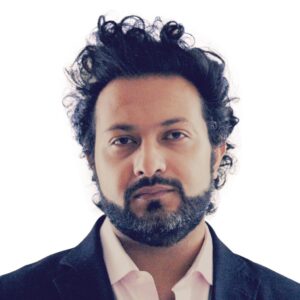A week into Russia’s invasion of Ukraine and the attempt to understand what is happening politically is still developing.
Analysts grappling with how the status quo on the European continent was so rapidly and comprehensively overturned have looked to Syria, Russia’s last major military intervention, for clues. In doing so, they have consistently linked Moscow’s incursions in both countries to a theory for how Russia’s role in Syria prepared the ground for the Ukraine war.
The theory has two variations. In the first, it is that Barack Obama’s inaction on the use of chemical weapons by the Assad regime in 2013 – when Assad violated Obama’s “red lines” without consequence – made America seem weak, and led – six months later – to Vladimir Putin annexing Crimea.
In the second, Russia, having seen the opportunity to remake the politics of Syria through military means, has attempted to do the same thing a second time – first threatening Ukraine in the hope of bullying the government into concessions, and then, when that didn’t work, launching a full-scale attack with the aim of regime change.
The trouble with both these theories is that they elide parts of Russia’s recent history to make the theory work. There is a link between the military missions in Syria and Ukraine, but it is not the one Moscow is often accused of.
In the first case, there is no comparison between America’s president issuing “red lines” to Syria and the hypothetical scenario where an American president issued “red lines” to Russia over Crimea. The threats are not the same. In the first instance, if Obama had decided to enforce those red lines, the maximum he could have tried was an attempted decapitation of the Assad regime, for example bombing the presidential palace in Damascus. But enforcing “red lines” on Russia by military force is of a different order: It would inevitably provoke a war between two nuclear-armed adversaries.
In the second case, the idea that Putin felt his actions in Syria offered a green light for an invasion of Ukraine overlooks a decade of military action along Russia’s periphery. Putin made his reputation as a tough politician in the Caucasus wars – Chechnya was the first conflict he was involved in, almost from the moment he became president. His 2008 lightening war in Georgia – which was all over in barely five days – is a much better analogy for a test-run for the invasion of Ukraine than Syria.
It wasn’t that the Russian intervention in Syria convinced Putin he could reorder the politics and future direction of nations by force – he already knew that from Georgia. No, what Syria proved was that you could do that openly, in full view of the world, and it didn’t matter.
That was Syria’s great lesson to Moscow: That the US-led order, despite being backed by immense military hardware, was fragile. There was no will to enforce it.
Of course the debacle of Obama’s “red lines” played a pivotal role. But it was also a result of Putin’s constant testing of the boundaries of the West and its appetite for military action. The missions in Georgia and Crimea were carried out quietly; in Georgia, it was a lightning strike; in Crimea, the use of “little green men,” Russian soldiers without insignia, gave plausible deniability.
The Syria intervention wasn’t like that. Conducted 18 months after the annexation of Crimea, it took place without pretense. This was the first time that Russia had openly challenged the West, openly used its military hardware to try for an alternative result to what the West wanted. And yet it worked.
What Russia proved in Syria was that the Vietnam argument – that superpowers would inevitably get bogged down in insurgencies – wasn’t always true. Instead of proving to be Russia’s Vietnam – or a second Afghanistan, after the Soviet defeat in the 1980s – in fact the intervention was a blistering win for Moscow. Russia stabilized the regime and formed a close alliance with Damascus that will last decades, as well as giving it leverage over Turkey, Israel and Europe. From Moscow’s perspective, a win many times over.
No doubt, Russia’s president is hoping to do the same thing in Ukraine, to reorder Russia’s periphery, regardless of the desires of the West.
This is where the analysts who claim that if Putin is not stopped in Ukraine the whole of Europe is under threat are correct. What Putin is seeking to do is upend the strategic order of the European Union. But crucially, he’s not trying to usurp that order. The world that Putin imagines is not one where Russia, rather than the US or the EU, sets the global rules. Instead, what he is seeking is something more limited – and precisely because it is more limited, it is more likely to happen.
What Putin is seeking is a way of defying the US-led status quo without consequences, or at least without consequences that Moscow cannot bear.
The invasion of Ukraine doesn’t mean that, in a matter of years, there will be a new Soviet Union, stretching across eastern Europe. But it does make another, limited, war much more likely.
If Putin gets away with invading Ukraine and changing the politics of the country, whilst managing to weather the storm of sanctions, it will make many other countries on Russia’s periphery targets.
What Moscow learned in Syria was that the West’s mettle was fragile; he is testing it once again, in the most public way imaginable.

By Faisal Al Yafai is currently writing a book on the Middle East and is a frequent commentator on international TV news networks. He has worked for news outlets such as The Guardian and the BBC, and reported on the Middle East, Eastern Europe, Asia and Africa.
______________
Syndication Bureau






